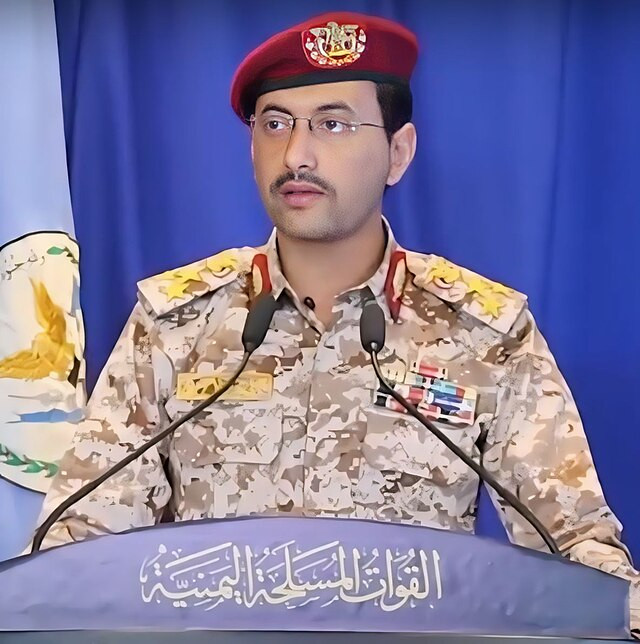For the first time, Israel has struck targets inside Yemen in retaliation for a deadly drone attack launched by Houthi rebels on Tel Aviv. This development marks a significant escalation in the ongoing conflict, which already threatened to spill over into the broader region.
The Houthis, an Iran-backed Islamist group based in Yemen, have been targeting shipping in the Red Sea since the October 7 Hamas attacks on Israel. They claim their actions are in solidarity with Gaza. Following Israel's airstrikes on Saturday, the Houthis launched another barrage of missiles towards Israel, promising a response that will be "huge and great."
The direct attacks between Israel and the Houthi rebels risk creating a new front in an already volatile conflict. Houthi spokesperson Mohammed Abdulsalam described the situation as "open war."
The Houthis, also known as Ansar Allah, have been a significant force in Yemen's civil war for nearly a decade. They emerged in the 1990s as a revival movement for the Zaidism subsect of Shia Islam. The group now controls most of northern Yemen and seeks to cement its role as the country's rulers through an agreement with Saudi Arabia, a major rival of Iran.
The Houthis are believed to be armed and trained by Iran. Since Hamas's October 7 attacks and Israel's subsequent military operations in Gaza, the Houthis have targeted Red Sea shipping to seek revenge against Israel. The US and UK have responded to these attacks by striking Houthi targets in Yemen, but Israel had not participated in these responses until now.
A significant tipping point for Israel came on Friday when a Houthi drone attack on Tel Aviv killed one Israeli citizen and injured several others. Houthi spokesperson Yahya Sare'e claimed the operation was conducted using a new drone capable of bypassing enemy interception systems. He vowed to continue such strikes until Israel stops its military campaign in Gaza and lifts the siege on the Palestinian people there.
The drone attack on Tel Aviv, Israel's commercial center, marked the first time the city had been struck by a drone in an attack claimed by the Houthis. Israel's Defense Forces (IDF) suspect the drone was an Iranian-made Samad-3 model, upgraded to extend its range. In response, Israel is upgrading its air defenses and increasing aerial patrols.
Israel's response came swiftly. On Saturday, Israeli aircraft struck the Yemeni port of Hodeidah, marking the first time Israel has conducted airstrikes in Yemen. The attack killed at least six people and injured scores more, according to Yemeni officials. The Houthi-run Al Masirah TV reported that the strikes targeted oil facilities and civilian infrastructure.
Prime Minister Benjamin Netanyahu defended the strikes, stating that the port was used by Iran to bring arms into Yemen. "The port we attacked is not an innocent port. It was used for military purposes, it was used as an entry point for deadly weapons supplied to the Houthis by Iran," Netanyahu said.
The escalation shows no signs of abating. Houthi spokesperson Yahya Sare'e declared that the group is prepared for a long war with Israel and that Tel Aviv is still not safe. Israel's Defense Minister Yoav Gallant warned that the "blood of Israeli citizens has a price," indicating that any attack on Israelis would be met with a strong response.
On Sunday, the Israeli military intercepted a missile approaching Israeli territory from Yemen, while the Houthis claimed they had launched several ballistic missiles. The ongoing war in Gaza has already heightened tensions between Israel and Hezbollah, another Iran-backed militant group in Lebanon, raising concerns about a broader regional conflict.
Houthi leader Abdul Malik al-Houthi stated on Sunday that the group would continue its "fifth stage of escalation in support of Gaza," with the drone attack on Tel Aviv marking the beginning of this phase. While the Houthis present a new challenge for Israel, experts suggest that Hezbollah remains a more significant threat due to its extensive arsenal and proximity to Israel.
The conflict's escalation highlights the complex and volatile dynamics in the region, with the potential to push Israel and Iran closer to open warfare. Israel and Iran have already traded direct exchanges since October 7, and the international community is wary of further destabilization.
As Yoel Guzansky, a senior fellow at the Tel Aviv-based Institute for National Security Studies, noted, Israel's restrained response until now was a signal to the US and the international community that "enough is enough." He added, "You have to signal to a rogue actor that is attacking you that there is a price to pay, and I think this is what Israel tried to do."






